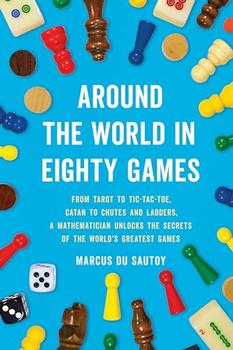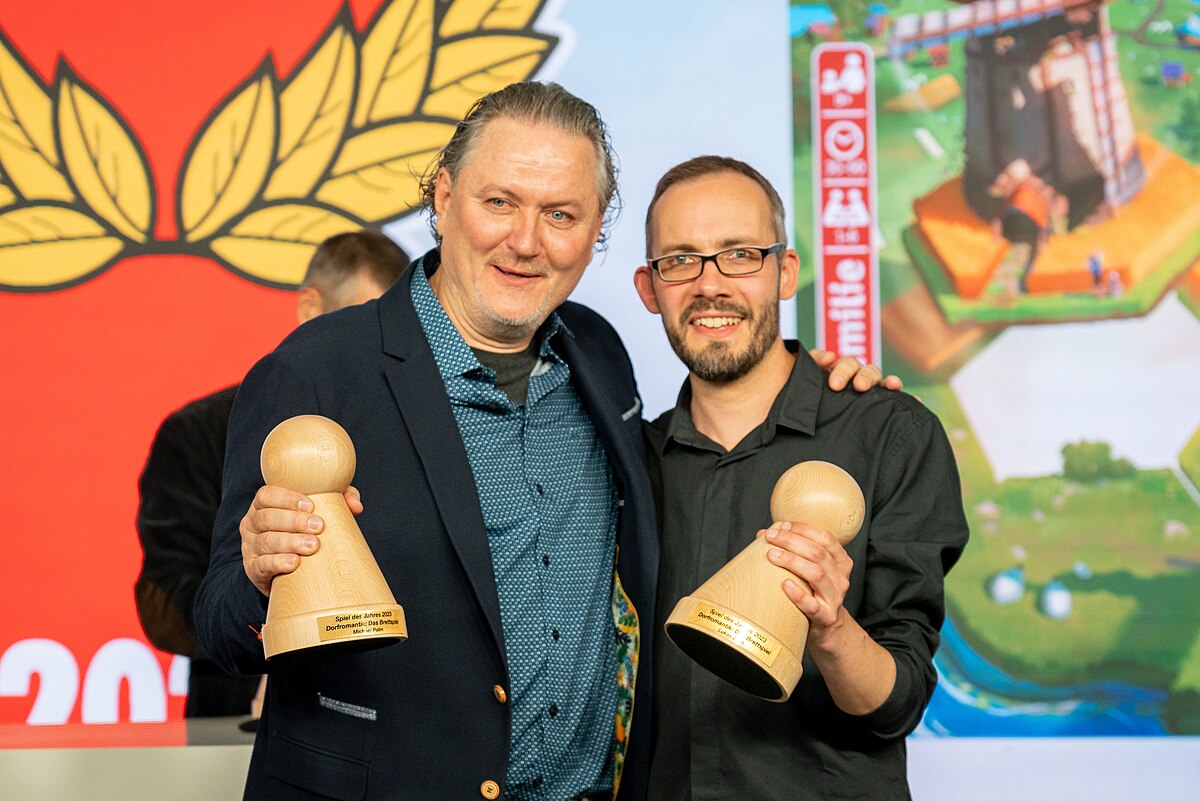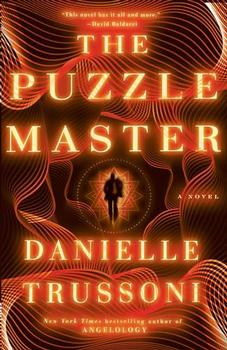Summary | Excerpt | Reviews | Beyond the book | Read-Alikes | Genres & Themes | Author Bio

From Tarot to Tic-Tac-Toe, Catan to Chutes and Ladders, a Mathematician Unlocks the Secrets of the World's Greatest Games
by Marcus du SautoyAn award-winning mathematician explores the math behind the games we love and why we love to play them.
Where should you move first in Connect 4? What is the best property in Monopoly? And how can pi help you win rock paper scissors?
Spanning millennia, oceans and continents, countries and cultures, Around the World in Eighty Games gleefully explores how mathematics and games have always been deeply intertwined. Renowned mathematician Marcus du Sautoy investigates how games provided the first opportunities for deep mathematical insight into the world, how understanding math can help us play games better, and how both math and games are integral to human psychology and culture.
For as long as there have been people, there have been games, and for nearly as long, we have been exploring and discovering mathematics. A grand adventure, Around the World in Eighty Games teaches us not just how games are won, but how they, and their math, shape who we are.
In early sections on the Middle East and India, Du Sautoy explores the origins and rules of games that are popular globally, such as backgammon, chess, and hopscotch, as well as elements like dice that form the basis of countless others. Additional subjects such as senet or the royal game of Ur might be new discoveries for readers but are clearly revealed through straightforward explanations. Throughout, Du Sautoy, who is a professor at the University of Oxford, takes a mathematical approach to his investigation. He frequently includes sidebars that explain various elements of probability, or that show how mathematics can be employed to devise a winning (or at least comparatively competitive) strategy for a game like rock paper scissors. These sections are certainly not required reading, but will be accessible to interested readers, even those who aren't particularly mathematically minded...continued
Full Review
(598 words)
This review is available to non-members for a limited time. For full access,
become a member today.
(Reviewed by Norah Piehl).
 In his section on European games in Around the World in Eighty Games, Marcus du Sautoy discusses the Spiel des Jahres ("Game of the Year"), the most prestigious award in tabletop gaming, awarded annually since 1979 by a jury of journalists who write about games. The Spiel des Jahres carries no cash prize, but certainly the winners (which subsequently can feature the Spiel des Jahres logo on their box) see a huge bump in worldwide sales. The honor has been given in the past to such modern classics as The Settlers of Catan, Ticket to Ride, Rummikub, and Carcassonne.
In his section on European games in Around the World in Eighty Games, Marcus du Sautoy discusses the Spiel des Jahres ("Game of the Year"), the most prestigious award in tabletop gaming, awarded annually since 1979 by a jury of journalists who write about games. The Spiel des Jahres carries no cash prize, but certainly the winners (which subsequently can feature the Spiel des Jahres logo on their box) see a huge bump in worldwide sales. The honor has been given in the past to such modern classics as The Settlers of Catan, Ticket to Ride, Rummikub, and Carcassonne.
2023's Spiel des Jahres was a game called Dorfromantik, designed by Lukas Zach and Michael Palm. The title, which might sound funny to English speakers, is an old German ...
This "beyond the book" feature is available to non-members for a limited time. Join today for full access.

If you liked Around the World in Eighty Games, try these:

by Anne Curzan
Published 2025
A kinder, funner usage guide to the ever-changing English language and a useful tool for both the grammar stickler and the more colloquial user of English, from linguist and veteran professor Anne Curzan

by Danielle Trussoni
Published 2024
Reality and the supernatural collide when an expert puzzle maker is thrust into an ancient mystery—one with explosive consequences for the fate of humanity—in this suspenseful thriller from the New York Times bestselling author of Angelology